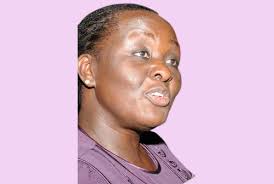
Speciosa Wandira
Speciosa Wandira was Vice-President of Uganda from 1994 to 2003, and was actually the first woman Vice-President on the continent. She is also a physician, and her story provides insight into the Anti-Homosexuality Bill passing through the Ugandan Parliament.
Dr. Wandira was once married to an engineer named Kazibwe. They had been married for some time. In 2002, she publically took on the taboo subject of domestic violence against women in Uganda. She revealed in public that she had been battered.
She was a 48-year-old woman then, a mother of four, speaking before Parliament on International Women’s Day, and she simply told the truth. She had endured abuse for three decades, she had suffered too much and for too long. She filed for divorce, and was finally granted it. The process was so time consuming and exhausting that she stepped down from government in 2003, but she had opened a full debate, in Uganda and on the continent, concerning marital rape, women’s rights in divorce settlements, property rights, and some regulation of polygamy.
On November 11, 2009, some seven years later, the Ugandan Parliament passed a Domestic Violence Bill. Women activists, feminists, civil society have welcomed the passage into law. It is a positive step … that took seven years and actually much longer. Imagine climbing stairs in which each step takes (a) a prominent leader to intervene and (b) seven years.
At the core of the debate concerning the Domestic Violence Bill was masculinity. What does it mean to be a man? What does it mean to be a man in Uganda? What does it mean to be an African man? These were the questions posed. These are the questions that underline the Anti-Homosexuality Bill, a bill that would punish homosexuality, the hint, the aroma, the aura of homosexual anything, by death. Are you now or have you ever been … ?
Speciosa Wandira is also one of the Champions for an HIV-Free Generation.
The Champions for an HIV-Free Generation are a group of African leaders committed to “meeting the challenge of AIDS”. They number ten: Festus Mogae, former president of Botswana; Kenneth Kaunda, former president of Zambia; Joaquim Chissano, former president of Mozambique; Benjamin Mkapa, former president of Tanzania; Desmond Tutu, former Archbishop of Cape Town; Edwin Cameron, currently a Justice of the Constitutional Court of South Africa; Miriam Were, chairperson of the Kenyan National Aids Control Council; Joyce Mhaville, chairperson of the Steering Committee of the African Broadcast Media Partnership Against HIV/AIDS (ABMP); Liya Kebede, Ethiopian model and Goodwill Ambassador for the World Health Organization’s maternal and child health program; and Speciosa Wandira Kazibwe.
It was reported yesterday, Sunday, November 15, that, at the end of October, Festus Mogae, chairperson of the Champions for an HIV-Free Generation, sent a letter to Uganda’s President Museveni. In that letter, President Mogae charged that “the draft HIV/Aids Prevention and Control Bill 2008 and the proposed Anti-Homosexuality Bill could have a chilling effect on HIV/Aids prevention efforts.” The problem is the pandemic. Are you now or have you ever been…HIV+?
But what if the Anti-Homosexuality Bill is linked instead to the Domestic Violence Bill? According to some, “40% of crimes committed in 2008 were crimes of passion or related to domestic violence”. Others suggest that 68% of Ugandans have suffered domestic violence. When it comes to domestic and sexual violence, it’s women and children first.
The stew of discrimination, state persecution and execution of human beings provided by the Bahati Bill is an all too familiar one, especially to those who live and struggle with domestic and sexual violence. It’s part of a continuum. Here’s an example.
On Wednesday morning, a radio call-in show in Kampala had birth spacing and family planning as its theme. According to one report, the topic in fact was man: “Let no one confuse us, we want many children. Every man should not consider himself done until they have got 80 children,” said a caller into Impact FM’s morning show on Wednesday. “How can you a Muganda man, say that you have only two children, it is a shame. You have become a mzungu (white man),” said another…. Though women bear the brunt of big families and frequent pregnancies, the callers were mainly men and almost all of them were calling for large families. Listening in, I wished children grew on trees so that whoever wanted many could go and pluck them. Sadly, that is not the case. A woman, somewhere, has to risk her life to bear children in Uganda. According to statistics, a Ugandan woman has a one in 27 lifetime chance of dying during the process of getting a baby. This is compared to a one in 8,000 chance in the developed world — yet the men were calling for 60 or 80 children per man. At an average of seven children per woman in Uganda, this means each man would need at least 10 women to achieve this feat. Uganda is an agricultural country and 80% of the production is by women. If these same women are going to be pregnant seven times in their lives, when will they get time to look after their babies and also contribute to their family development?”
“You want only two kids, are you a mzungu?” Are you gay? Are you a lesbian? Are you a woman? Are you a wife? Are you a mother? Are you a man? Are you a man? Are you a man? Are you now or have you ever been …?
(Photo Credit: The Daily Monitor)